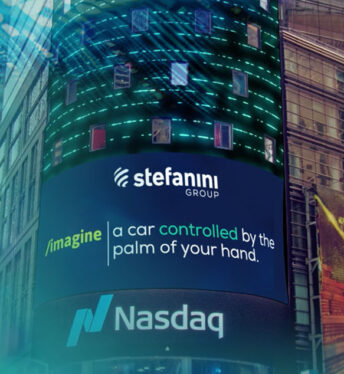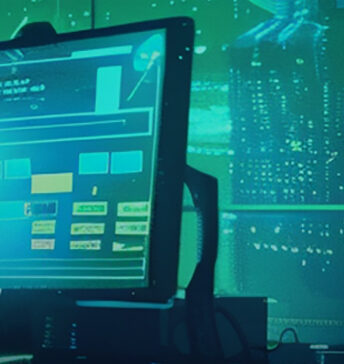While unforeseen circumstances will always present new challenges, an enterprise that promotes adaptability in the workplace is prepared for disruption.
Adaptability, often seen as a desirable quality in employees, suddenly became a necessity for businesses amidst the unprecedented reality of the COVID-19 pandemic that forced many organizations to quickly adapt their infrastructure. This disruption has coincided with a steadily increasing rate of technological advancement and companies that are unable to proceed while adopting new digital capabilities risk lagging behind competitors.
The need to prepare for disruption while creating practical roadmap for digital transformation is exactly why adaptability in the workplace has become a necessity on both an individual and organizational scale. How can an Adaptability in the workplace help an organization prepare for disruption? Read on to find out!
What is Adaptability in the Workplace?
Adaptability has traditionally been thought of as a soft skill, the ability to rapidly learn new skills and change behaviors in response to evolving circumstances. Adaptability can be defined as the ability to modify behavior and adjust with new circumstances or environments. In the workplace, this means being open to new ideas, systems, innovations, or workflows – being willing to make changes where necessary.
Over the last year, many businesses struggled to reorient with a new reality, finding themselves forced to adapt for remote work models and flexible capacity. This stands in contrast to organizations who had already prioritized digital transformation efforts and were able to transition their work models with relative ease.
Circumstances change, competitors introduce new products to the market, customer demands shift, and economies across the world the economy have become vulnerable. Your business can either plan to meet challenges as they arise, or you can take steps to prepare the workplace for disruption by creating an adaptable infrastructure.
Want to learn more about Stefanini’s Workplace and Infrastructure Solutions? Click here!
Reskilling: Adapting to Change in the Workplace
As companies fight to keep pace with new technological advancements, one of the most prominent organizational concerns is how to reeducate existing employees. New advancements and digital capabilities rewrite our understanding of existing work models leaving businesses with the challenge of how to prepare their workforce to take on new skills.
A McKinsey Global Institute analysis estimated, “that 14 percent of the global workforce will need to be reskilled entirely, and 40 percent will need partial reskilling to continue with their current occupations.” And LinkedIn’s 2020 Workplace Learning Report supports this, suggesting that “99 percent of learning and development executives believe if skill gaps are not closed in the next 3 to 5 years, customer experience and satisfaction will be affected as well as product development and delivery, and the company’s ability to innovate – resulting in an erosion of growth.”
As digital transformations rewrites old methods of business, organizations that fail to create strategies for upskilling now will limit their potential to do so at scale in the future. This concern is directly tied to employee engagement as even simple efforts in tech adoption can fail if employees are not actively preparing for changes to company culture. This may mean making changes to existing infrastructure in order to build a workplace experience that will strengthen your adaptability.
For this reason, businesses should implement support systems that help employees identify and close gaps in digital dexterity. Likewise, anywhere work models are likely to improve efficiency and employee engagement while reinforcing resilience. Even if anywhere operations are not necessarily an existing part of a company’s culture, employees should be equipped to operate remotely in order to innovate and adapt for unforeseen circumstances. Providing employees with the autonomy to manage their own time creates better opportunity for healthy work-life balance and personal mental wellness.
How can the right Digital Workplace Strategy help attract top talent? Learn more here!
How Adaptable Employees Strengthen an Enterprise
The workplace itself has been evolving and today’s work culture is relies on teamwork, rather than a rigid hierarchy. Processes are always being improved, products are constantly modified, and technologies are evolving fast. Adaptability is important because as new technology evolves, companies established in the “old ways” may have difficulty competing with major players in their industry.
Since every business sector can experience unpredictable circumstances, the ability to develop adaptability skills is a highly valued quality in the workplace. Often, employers seek adaptability when hiring new staff, and the skill is increasingly included in job descriptions and expected on cover letters due to its significance for growth and development within a role.
Adaptability is a soft skill and in the workplace this translates to flexible mentality. Flexible employees who can adjust with changing factors, conditions or environments are the core of a strong enterprise. These employees are able to rapidly learn new skills and behaviors and respond effectively to a variety of working conditions, even in situations where things do not go as planned. They work well on their own and with team members and their flexibility make them prime candidates for leadership roles.
Similarly, people in leadership positions who show adaptability are often expected to manage unusual situations without explicit instruction. Leaders need strong adaptability skills to quickly problem solve and trust their judgement when making difficult decisions. In particular, project managers must be able to have the ability to adapt and integrate various moving parts of a project and deliver a quality product or service in a timely manner.
Adaptable leadership skills in the workplace serve to strengthen the resilience of operations across an organization. Companies need to prioritize talent acquisition strategies and one of the best ways of doing so is to provide a workplace experience that emphasizes digital, cognitive, social and emotional skills.
How can you design your enterprise for adaptability? Click here to learn more!
Restructure Your Workplace Experience for Adaptability with Stefanini
Implementing changes in company infrastructure to promote adaptability remains a large scale challenge that requires the careful examination of a company’s existing employee workflows and processes to create a transformation strategy.
Stefanini is ready to bring the latest and best digital tools needed to boost your digital capabilities.
Our team of experts will examine your organization and use their knowledge to find the technology that meets your unique workplace concerns. Ready to get started?



















